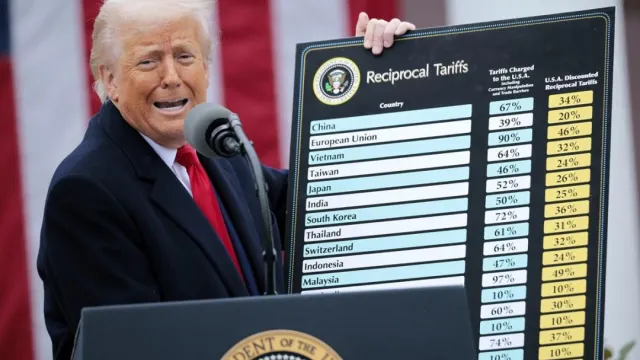Trump tariffs cast a long shadow on Kenya's tourism—survey

Early this year, U.S. President Donald Trump imposed baseline duties of 10 percent on most African imports, including from Kenya and increasing to 30–50 percent for South Africa, Lesotho, and Madagascar.
As President Donald Trump's trade tariffs unleash a body blow to the world economy, players in Kenya's tourism industry—once a vibrant engine of growth—now brace for a severe blow, with Central Bank survey forecasting that the sector expects devastating disruptions in the next 12 months.
The September 2025 CBK CEO survey lays bare the grim reality: Kenya's tourism, hotels and restaurants face a crippling 32.7 percent knock, outpacing manufacturing 22.4 percent, and financial services' 12.2 percent setback, as these U.S. trade tariff choke East Africa's largest economy, and threaten livelihoods for thousands of workers.
"Most respondents anticipate to be affected by the recent U.S. trade tariffs and policy changes through higher import costs for inputs and finished goods and, reduced exports to the U.S. after the expiry of AGOA," the CBK survey which was carried out before revision of the benchmark rate to 9.25 percent last week states in part.
It adds: "They [CEOs] also expect lower consumer demand due to reduced disposable incomes from declining profits and job losses, as well as secondary effects on local businesses reliant on affected clients. For instance, the hotel industry reported reduced business, with fewer conference bookings from NGOs and other donor-funded programs."
Tariffs of U.S.—bound exports
Other industries projecting potential negative hit by the imposition of a 10 percent tariffs on Kenyan goods bound for the U.S. markets are: financial services (12.2 percent), professional services (12.2 percent), ICT (6.1 percent), wholesale and retail (6.1 percent) and agriculture (4.1 percent).
"U.S tariffs and policy changes and geopolitical tensions could constrain growth," the report warns. The report notes that U.S. tariffs and policy changes continue to pose risks to business growth with possible disruption of global supply chains and subsequent increase in the cost of imports.
"Majority of the respondents [CEOs] expect to be impacted by the recent U.S trade tariffs and policy changes." Early this year, Trump imposed baseline duties of 10 percent on most African imports, including from Kenya and increasing to 30–50 percent for South Africa, Lesotho, and Madagascar.
The Survey targets over 1,000 CEOs of key private sector organizations in Kenya including members of the Kenya Association of Manufacturers, the Kenya National Chamber of Commerce and Industry and the Kenya Private Sector Alliance.
According to CBK, the bulk or 75 percent of the CEOs who participated in the survey run privately-owned companies, while the rest were privately-owned foreign businesses (16 percent), government owned entities (7 percent).
Survey data shows that 43 percent of the respondents had a turnover of less than KES250 million in 2024, while 17 percent of the CEOs had a turnover of between KES250 million and KES1 billion. What's more, 26 percent of the respondents had a turnover of between KES1 billion and KES5 billion.




